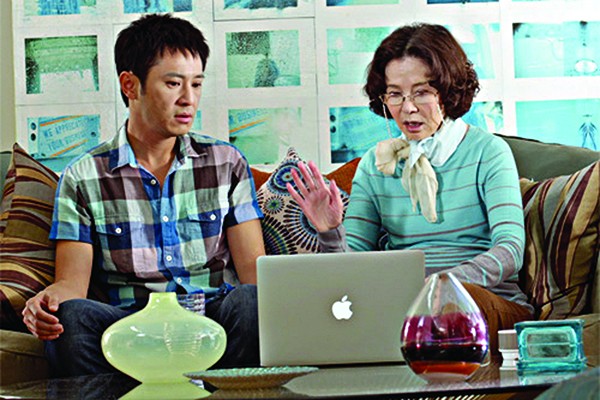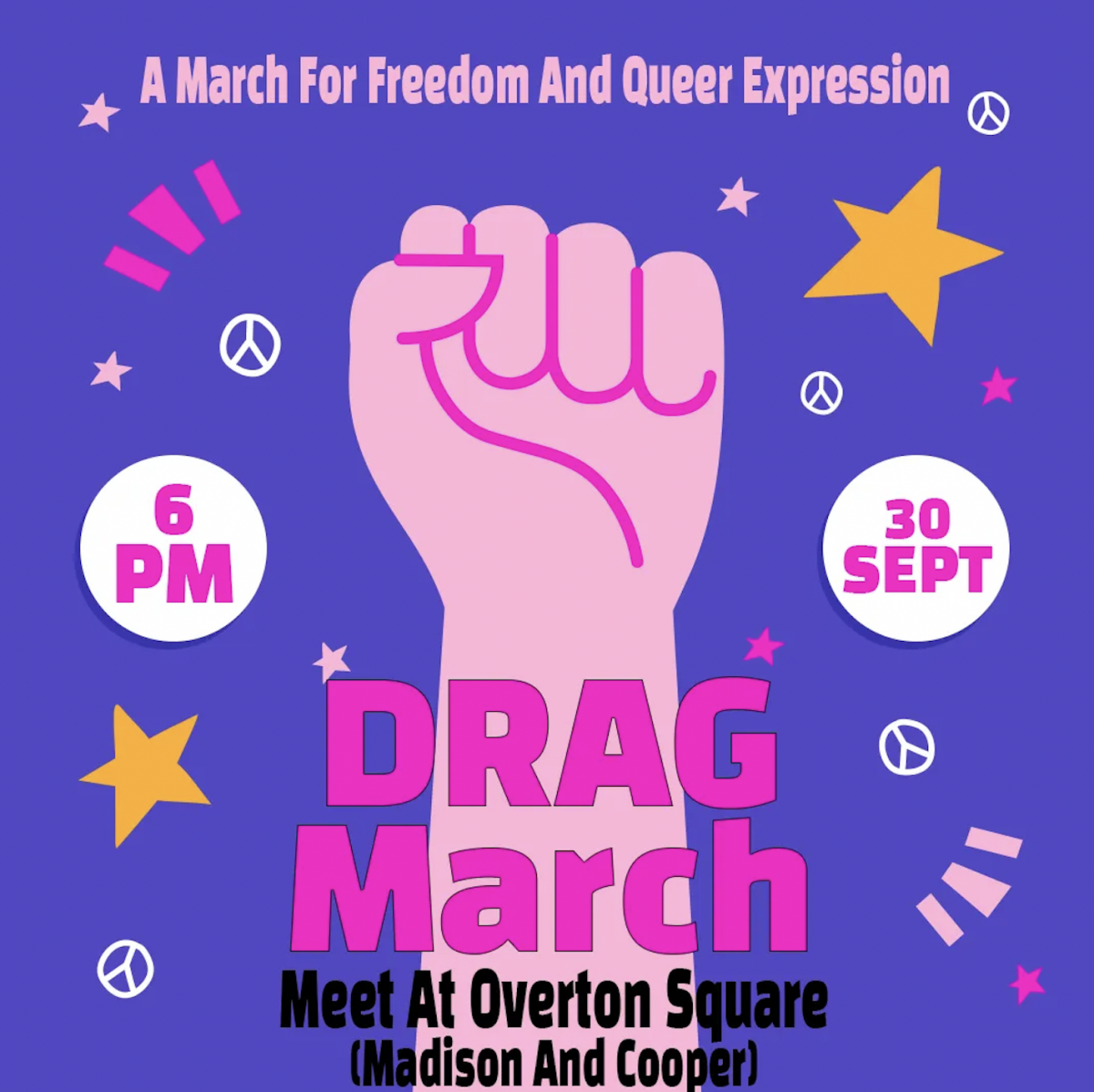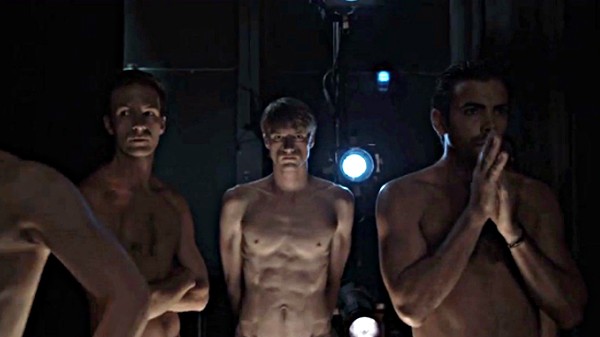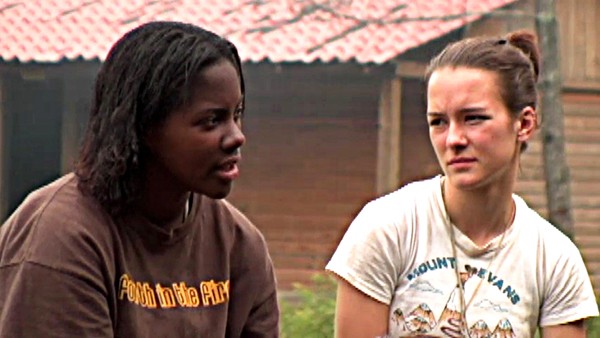This is how Outflix director Jeffrey Harwood sums up the need for the annual LGBT festival: “We want to see positive depictions of ourselves on the screen.”
The GLAAD Studio Responsibility Index reported that 82.5 percent of films released in 2014 had no recognizable LGBT characters. Even when they did appear in films, the depiction was usually not positive. “The LGBT character was the butt of the joke, and not in a good way,” Harwood says. “So it’s important for our community to see these positive representations. But outside of the community, it’s a chance for us to educate our allies and friends, and even those who don’t know about the festival, but say ‘There’s an interesting movie. I’ll go see it!'”
This year’s lineup is chosen from an entry field that included 149 narrative features, 70 documentaries, and 426 shorts. “We had around 20 people who were screening films for us. Without them, we would not be having a festival. It’s a very large investment of time,” Harwood says. “There are a lot of good ones that didn’t get into the festival, because we just didn’t have enough slots.”
Programming the festival means finding good movies for everyone. “We have to be sure all aspects of our community are covered, the L, the G, the B, and the T,” Harwood says.
Unique Offerings
This year’s festival includes offerings from Australia, Canada, Argentina, Venezuela, Mexico, Belgium, United Kingdom, and India, as well as films from all over the United States. The selections also include genres new to Outflix. Cut Snake (Sun. Sept. 13th, 7:30 p.m.), directed by Tony Ayres, is a noir thriller with a bisexual love triangle that debuted at the Melbourne International Film Festival. “We’ve never had a movie like this before, which is a crime thriller,” Harwood says. “It’s very good, very gritty.”

Margarita With A Straw
Closing night film Margarita With A Straw (Thursday, Sept. 17th, 8:30 p.m.) is also a different sort of film for Outflix. “The last few years, we’ve managed to have a film about developmentally challenged individuals,” Harwood says.
The Indian film, directed by Shonali Bose, centers on the struggles of Laila (Kalki Koechlin), a college student with cerebral palsy trying to make it in New York.
Trans-Pacific Partnership
The festival opens with Baby Steps, written and directed by Barney Cheng, a veteran character actor turned filmmaker. It is a joint Taiwan/American production helmed by Li-Kong Hsu, the producer behind Crouching Tiger, Hidden Dragon. Cheng stars as Danny, a Chinese/American man living in Los Angeles. He and his partner Tate (Michael Adam Hamilton) have a happy life, but his very traditional Chinese mother, Mrs. Lee, played by Gua Ah Leh, is pressuring Danny to give her a grandchild. She loves her son, but is in deep denial about his sexuality. When she comes to the United States to visit Danny, he reveals that he and Tate have decided to have a baby with a surrogate mother.

Baby Steps
“It’s extremely timely, talking about parenting and family,” Harwood says. “Now that marriage equality is the law of the land, people are looking toward parenting. That’s one of the next steps that the LBGT community is going to be facing.”
Mrs. Lee is torn between her desire for a grandchild and her concepts of what a family should look like. She has a tendency to run off the girlfriends of Danny’s heterosexual brother who lives close to her in Taiwan, but faced with the very real opportunity to choose the genetics of her grandchild on an online matching service for surrogate mothers, she gets squeamish.
Ah Leh’s well-modulated performance as a mother trying to adapt to new circumstances is the heart of the film. “She’s very well-known in Taiwan, but unknown here,” Harwood says. “[Baby Steps] is not just focused on the two gentlemen wanting to have a baby, but the main focus of the movie is on her. It’s her struggle to come to terms with her son and his homosexuality, and his choice of how to live his life and have a family, and how does she fit into that?”
The globe-trotting film is classified as a drama, but it has a light touch and is not afraid to make comic hay out of situations like trying to get a cryogenic container of frozen embryos onto a plane in carry-on luggage, which leads to the should-be immortal line “I’m not having our baby FedExed!”
Reality and Hyper-Reality
The documentary slate ranges from the raw and personal to the ideal and heroic.
In The Turn (Saturday, Sept. 12th, 6:30 p.m.), directed by Erica Tremblay, is a story of hope and suffering. “It’s about Crystal, a 10-year-old transgender girl from Canada,” Harwood says. “Since she’s transitioned, she’s not able to play sports any more, she’s rejected by peers and teachers, and at one point, she was thrown into a dumpster. Her mother helps her find a place to celebrate her identity with the queer roller derby league called the Vagine Regime.”

In The Turn
In the derby, Crystal finds acceptance for the first time in her life, proving that the league’s diverse skaters see their sport as more than just a hobby, but a strong, accepting community.
Wonder Women! The Untold Story of American Superheroines (Sunday, Sept. 12th, 3:30 p.m.) is a compelling, fast-paced trip through 85 years of pop-culture history. “This one is also a bit different for us,” Harwood says. “While there are LGBT people in the movie, it’s not particularly focused on LBGT themes. It is focused on themes that are important to our community, like feminism and how women are portrayed in the media. It’s important to all of our community, because in the struggle for equality, we all face the same obstacles.”
Director Kristy Guevara-Flanigan starts with the origin of the Amazon myth in ancient Greece. When former psychologist and inventor of the lie detector William Moulton Marston was hired to create a female superhero during World War II, he took the stories of the “ruthlessly violent” matriarchal warrior society and created Wonder Woman, a protector of women and implacable enemy of fascism and sexism.
Wonder Woman would become an international icon of female empowerment. As one comics scholar in the film says, “Women of the 1940s comics were always getting tied up so they could get rescued. But Wonder Woman rescued herself!”
Buried in obscurity after the 1950s anti-comics hysteria caused by the book Seduction of the Innocent, she appeared on the cover of Gloria Steinem’s first Ms. magazine and became the valkyrie of the geek world when Lynda Carter portrayed her on television from 1975 to 1979.
The film is fun, informative, and inspiring, tracing Wonder Woman’s influence on subsequent women protagonists in film, TV, and comics as it bemoans the industry’s stubborn reluctance to put women front and center in action, adventure, and sci-fi roles, even in the face of evidence that audiences want to see them. “It shows that you can have a strong female character in a lead role, and it’s not just about her sexuality and femininity. But we’re not seeing those kinds of portrayals,” says Harwood, who invites everyone to come to the screening dressed as their favorite comic-book character for a cosplay fashion show preceding the film.








